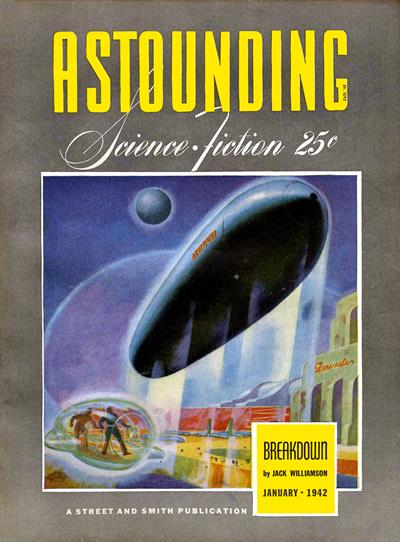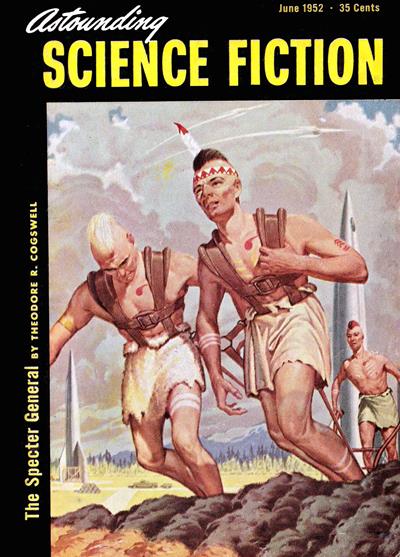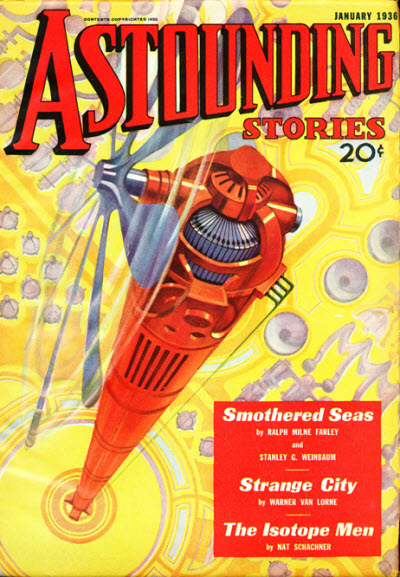
Part of Series
Vol 28, No 5. Contents: 5 • Pressing Problem • [Editorial (Astounding)] • essay by John W. Campbell, Jr. [as by The Editor] 9 • Breakdown • novelette by Jack Williamson 27 • Soup King • short story by Malcolm Jameson [as by Colin Keith] 35 • Mechanistria • [Jay Score / Marathon • 2] • novelette by Eric Frank Russell 57 • Military Explosives • essay by Malcolm Jameson [as by Malcolm M. Jameson] 62 • The Invaders • novelette by L. Ron Hubbard 76 • Fugitive from Vanguard • short story by Norman L. Knight 86 • The Long-Tailed Huns (Part 1 of 2) • essay by L. Sprague de Camp 94 • In Times to Come (Astounding, January 1942) • [In Times to Come (Astounding)] • essay by The Editor 95 • Brass Tacks (Astounding, January 1942) • [Brass Tacks] • essay by The Editor 96 • The Analytical Laboratory: November 1941 (Astounding, January 1942) • [The Analytical Laboratory] • essay by The Editor 96 • Letter (Astounding, January 1942) • essay by L. M. Jensen 97 • Second Stage Lensmen (Part 3 of 4) • [Lensman • 5] • serial by Edward E. Smith [as by E. E. Smith, Ph.D.]. 【 PREVIOUS ISSUE ← January 1942 → NEXT ISSUE 】
Authors


Malcolm Jameson began writing only seven years before his death. Yet in that short span he wrote and sold more than 70 novelettes and short stories. Critic Groff Conklin calls Jameson's work "lively, ingenious and readable." The majority of Jameson's work appeared in the magazines "Astounding Science Fiction" and "Unknown Worlds" but he was also published in a number of the other pulp magazines of the late 1930's and early 40's. His novella "Blind Alley", first published in the June 1943 issue of Unknown, was the basis for the Twilight Zone episode "Of Late I Think of Cliffordville" starring Albert Salmi, John Anderson, and Julie Newmar. The hour-long episode was broadcast on April 11, 1963.




Lafayette Ronald Hubbard With 19 New York Times bestsellers and more than 350 million copies of his works in circulation, L. Ron Hubbard is among the most enduring and widely read authors of our time. As a leading light of American Pulp Fiction through the 1930s and '40s, he is further among the most influential authors of the modern age. Indeed, from Ray Bradbury to Stephen King, there is scarcely a master of imaginative tales who has not paid tribute to L. Ron Hubbard. Then too, of course, there is all L. Ron Hubbard represents as the Founder of Dianetics and Scientology and thus the only major religion born in the 20th century. While, as such, he presents the culmination of science and spiritual technology as embodied in the religion of Scientology. For an in-depth look at his life, visit www.LRonHubbard.org


